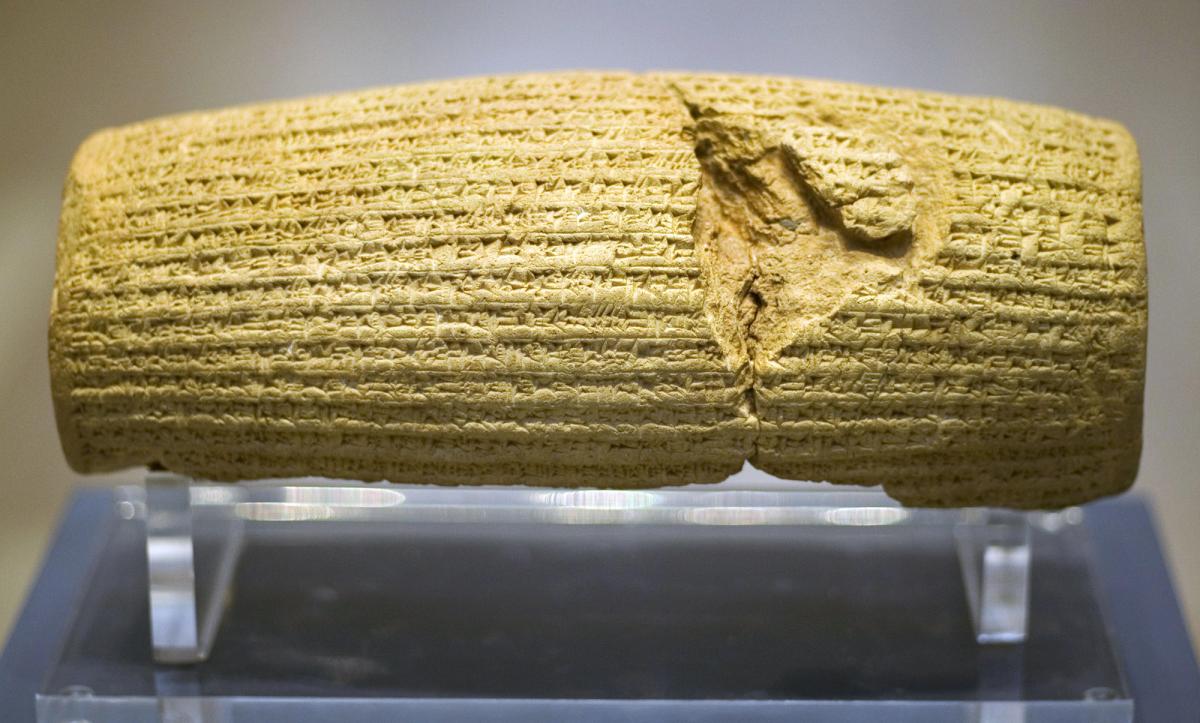Government officials in Iran have raised objections to plans by the British Museum to loan the Cyrus Cylinder, one of its most important antiquities, to a library in Jerusalem later this year. According to the Tehran Times,Iran’s Director General of the general office of museums, Hadi Mirzaei, has raised concerns about the loan and even threatened legal action against the London museum. The Iranian embassy in London was contacted for comment.
The cylinder is now on show at the Yale Peabody Museum of Natural History in the United States. A board meeting at the British Museum in March 2022 discussed the Cyrus Cylinder loans. The meeting minutes state: “The board approved the loan of the Cyrus Cylinder to the National Library of Israel, Jerusalem, and to the Yale Peabody Museum of Natural History, New Haven, USA.” The National Library of Israel in Jerusalem has not responded to numerous requests for comment.
Hadi Mirzaei protested the plan in a letter to Ali-Akbar Mottakan, secretary-general of the National Commission for Unesco-Iran (his museums department comes under the Iranian ministry of cultural heritage).
“The British Museum plans to transfer the Cyrus Cylinder, currently on display in the United States, to the national library… in Al-Quds [the Arabic name for Jerusalem] from 4 October to 28 November [2024],” says the letter published by the Mehr news agency. “The transfer of this historical artifact, which holds global significance, will undoubtedly be inappropriate due to potential risks associated with it.”
A spokesperson for the British Museum tells The Art Newspaper: “The Cyrus Cylinder is currently on loan to the Yale Peabody Museum of Natural History until 30 June. Details of any future venues for the cylinder will be announced in due course.”
The Cyrus Cylinder, an inscribed clay drum, dates from 539 BC and has been described as the “first charter of human rights”. It records Cyrus the Great’s order for the humane treatment of the Babylonians after their conquest by the Persians. The cylinder was excavated in Babylon, Iraq, in 1879.
It was loaned to the National Museum of Iran in Tehran from 2010 to 2011 and also left the museum in 1971 for an event in Iran; it was also shown in Houston, San Francisco and Los Angeles in 2013.


